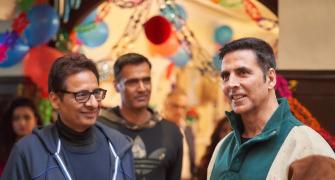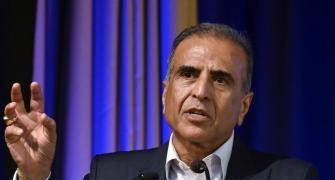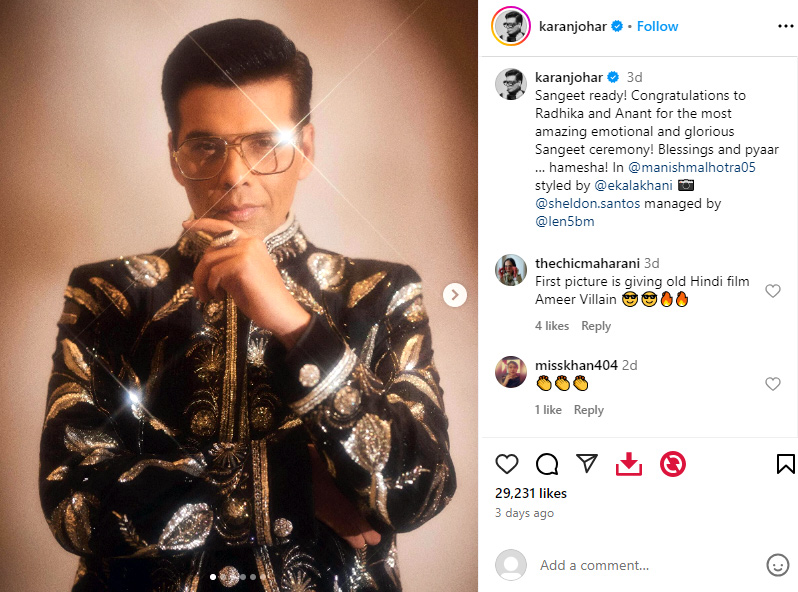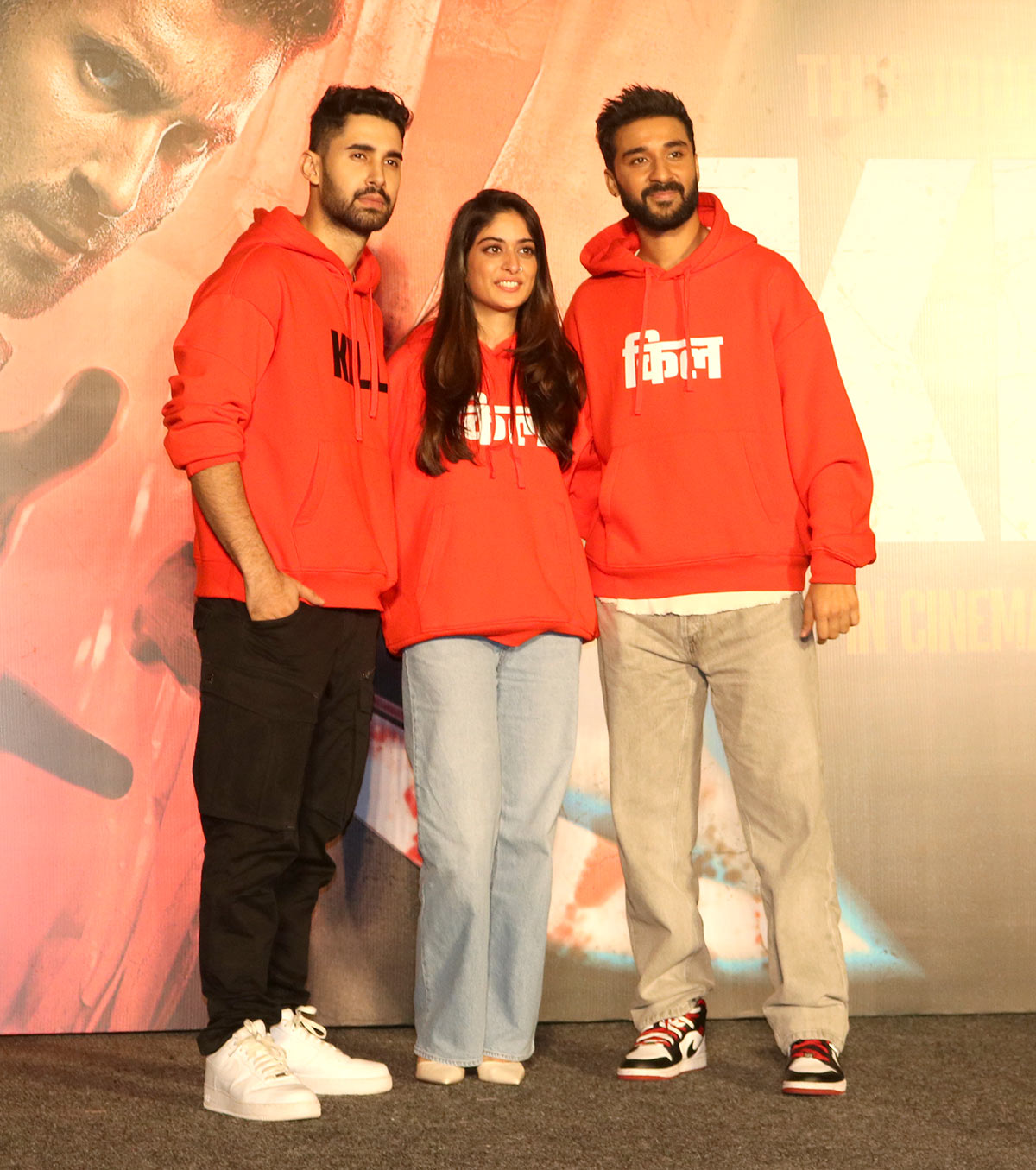'Everyone knows the money the stars are asking for is absurd.'
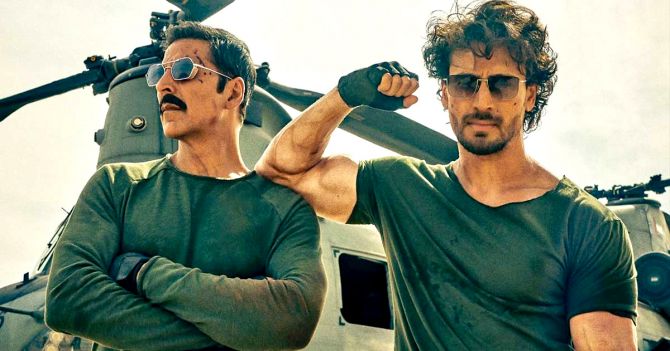
Ashok Kumar is widely recognised as Hindi cinema's first superstar, a status he gained with Kismet (1943), which earned a reported Rs 1.1 crore (Rs 11 million) to be labelled the first Hindi blockbuster. Before he became an actor, Kumar was a lab technician at Bombay Talkies, and continued to be on a monthly salary as an actor.
Contrast that to what Karan Johar said on Faye D'Souza's YouTube channel on July 5.
'There are 10 viable actors in Hindi cinema. They are all asking for the sun and moon and earth and you are paying them. Those movie stars are asking for Rs 35 crore (Rs 350 million) and opening to Rs 3.5 crore (Rs 35 million). How is that math working?' Johar said.
This statement resonated far and wide, because Johar's Dharma Productions is one of the biggest production houses. And it came at a time when several star vehicles have not done roaring businesses, though they were made at humongous budgets in which the biggest cost head was the leading man's fee.
Hindi film industry's insiders say Johar is big enough to state this boldly. Several film-makers share his view but are reluctant to speak out.
Is the dependence on stars making the business model of Hindi movies unviable?
"There is nothing wrong with the business model. There is a problem with how people value talent. When an actor or director is paid more than the value they add to a film, the model breaks," says Chaitanya Chinchlikar, vice-president at Whistling Woods International, a well-regarded school in Mumbai for film and other creative arts.
"Stars who cannot guarantee a minimum Rs 100 crore (Rs 1 billion) opening must not be paid Rs 35 crore. My question is, why are they being paid Rs 35 crore?"
The question becomes more pertinent at a time when some non-star vehicles are raking it in, most notably 12th Fail, produced and directed by Vidhu Vinod Chopra.
As film budgets have expanded in the modern era, their biggest cost head has ballooned disproportionately. One male star is believed to have made Rs 130 crore (Rs 1.3 billion) from a single movie. That was his last hit, in 2021. Since then, he has given a string of flops but continues to be paid high fees.
In contrast, there is a leading actor who charges nothing upfront. He takes a cut in the profits once the entire cost of the film -- including all salaries and marketing and promotion costs -- have been recovered.
He takes a lion's share of the profits, three-fourths or so, but he bears the risk as well. He gets nothing if the film makes a loss.
Another leading actor produces all his movies now.
There are just three or four who bear the risk. Most of the others want their money upfront. This money, which would be in lakhs in the 1990s, is now several times more.
These fees were sustainable till about two years ago.
Starting 2020, when COVID enveloped the world in a pall of gloom, streaming platforms such as Netflix and Amazon Prime Video splurged on content. They acquired rights to movies for large sums, and commissioned original content for budgets just as large, if not more.
As people stayed home, content consumption at home shot through the roof and streaming platforms wanted to cash in.
Now audiences' appetite is much less. What's more, viewers have become choosy. Some of the films flopping today would have done well during the pandemic. But not anymore.
Naturally, streaming platforms decided to tighten their purse strings. Industry insiders say they now pay no more than Rs 35 crore to Rs 40 crore (Rs 350 million to Rs 400 million) for a film for which they would have paid Rs 70 crore (Rs 700 million) during the pandemic time.
"Stars became unaffordable the moment the pandemic ended. Deep down, everyone knows the money they are asking for is absurd. To make money, the best case scenario must happen. That is not how businesses are run," says Anish Chandy, Founder of Labyrinth Literary Agency, which has so far been involved in more than 110 deals to convert books into movies and Web series.

Amid this, 12th Fail stands out as a huge success without stars. How replicable is this model?
"It is workable, but very difficult," says Diptakirti Chaudhuri, who was business head at Vinod Chopra Films till April this year.
"The solution does not lie in the revenues, the solution lies in the cost. Mr Vidhu Vinod Chopra is a creative powerhouse, but he is also a canny producer."
According to Chaudhuri, Chopra, as the producer, puts his money where he thinks it will make a difference to the film.
He is also frugal in where he shoots and how much he spends. Even his large-budget films are, compared to other star vehicles, made on reasonable budgets.

Chopra also had the unwavering conviction that 12th Fail would work in theatres. Going against the custom, he released it without a deal with a streaming platform.
"It was Mr Chopra's belief in his product. He had the conviction that his film will do better than a star vehicle," says Chaudhuri, who now works as chief marketing officer with Casagrand Builder in Bengaluru.
Chandy, however, points out that there will be more movies like 12th Fail.
Already, Munjya is one of the hits of 2024.
It 'stars' Sharvari Wagh and Abhay Verma. Have you heard of them?




